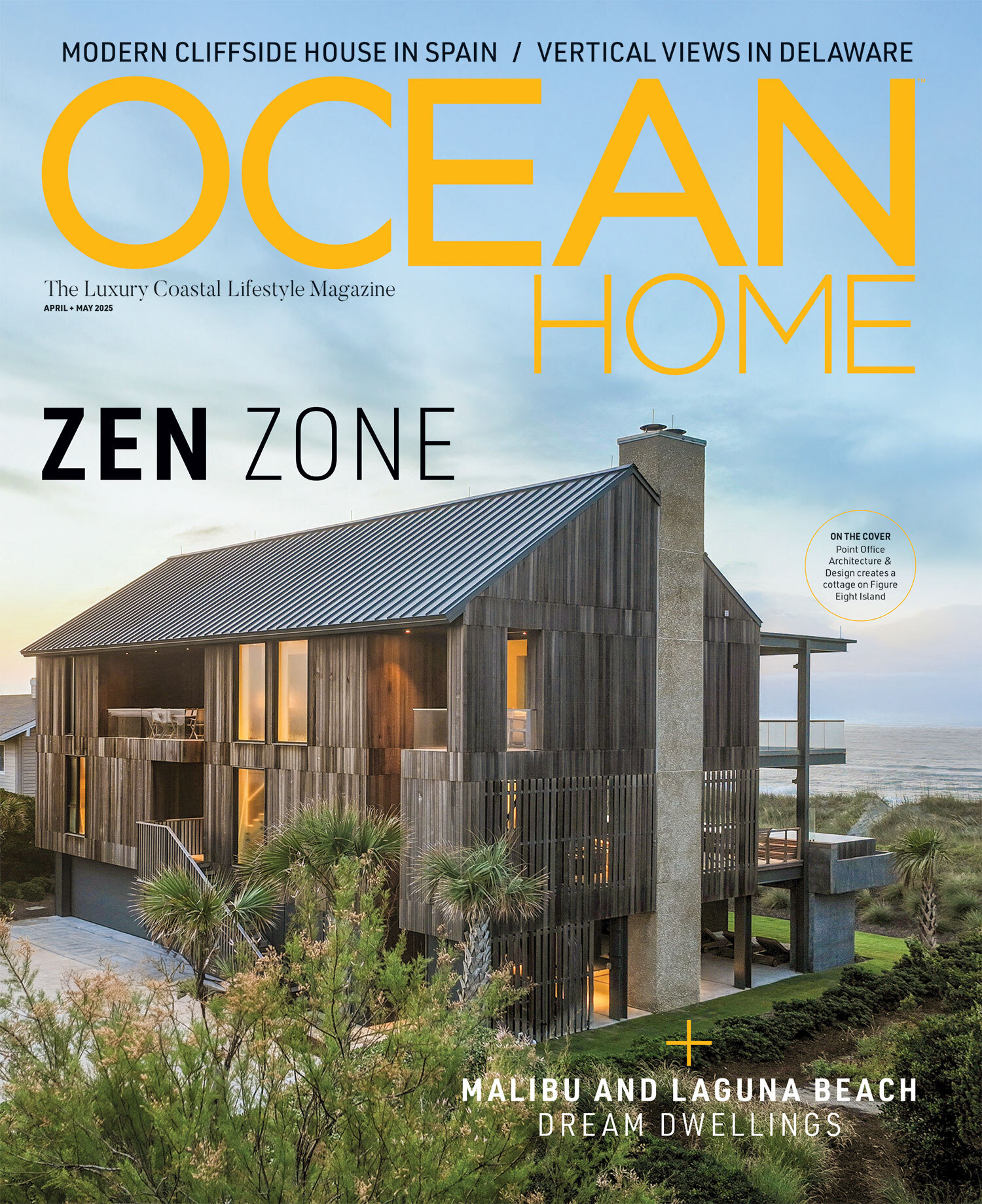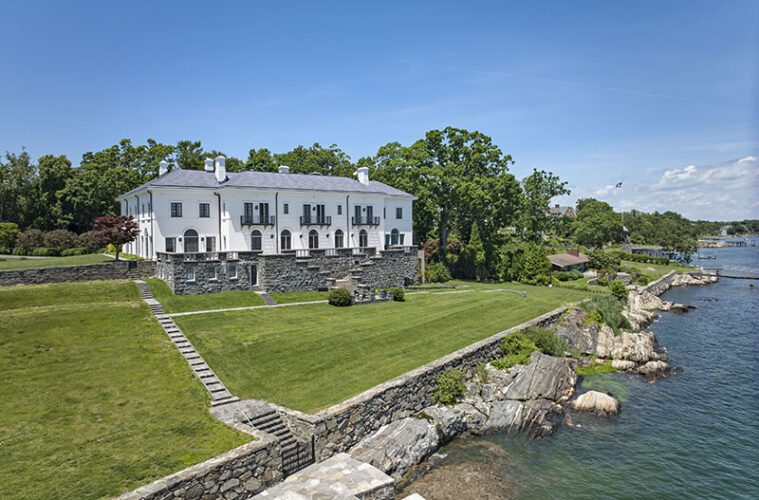In 1916, yachting enthusiast Henry Steers purchased the land for his second home, on the banks of Long Island Sound. A U-shaped affair, it was sited on six-acres in the Byram Shore section of Greenwich, Connecticut.
Steers passed away at the home in 1928, but it stayed in the family until the mid-1950s. More recently though, the once-grand home was listing toward dereliction. Its pink stuccoed exterior and worn-out interiors could only be called down at the heels. It was bland, dated—and untouched for years.
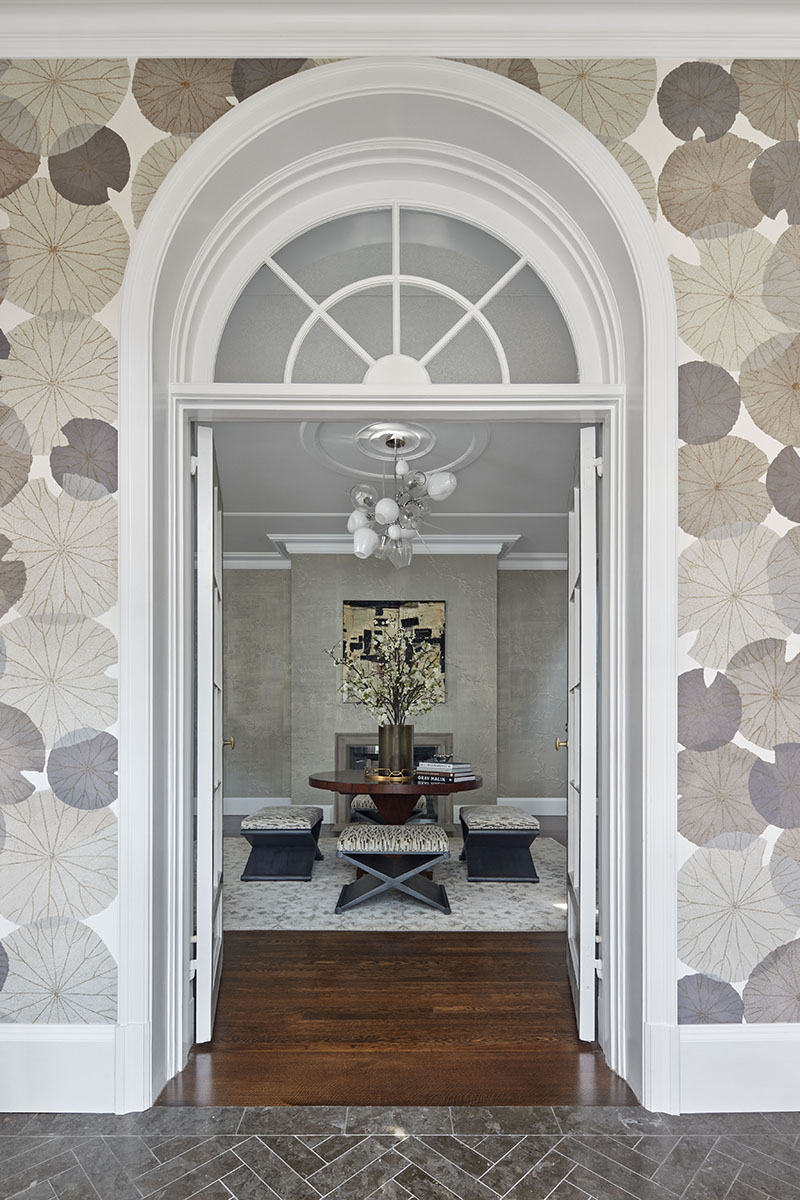

Enter Charles Hilton, of the Greenwich architecture firm that bears his name. A Classicist of the first order, he was hired to rethink the home’s look, inside and out. “The new exterior style initially was envisioned in a Mediterranean aesthetic with a barrel-tile roof,” he says. “But it was ultimately executed to resemble an English or Irish country house with a new, flat, terracotta tile roof.”
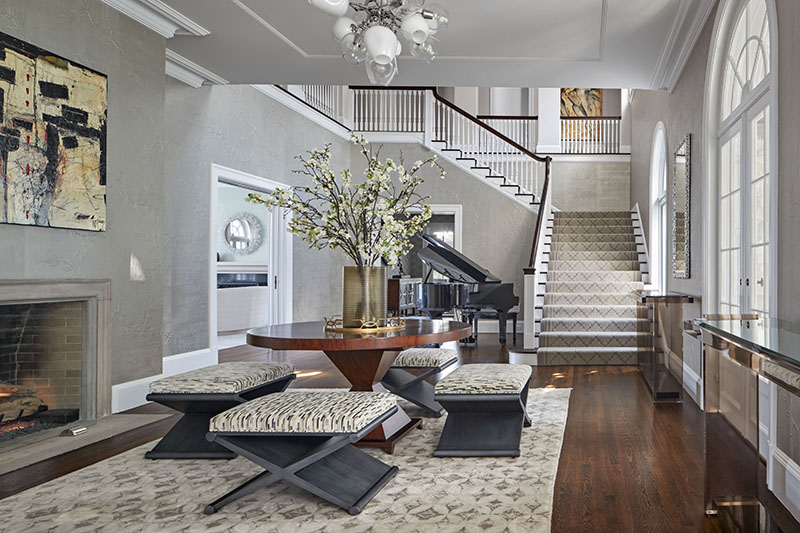

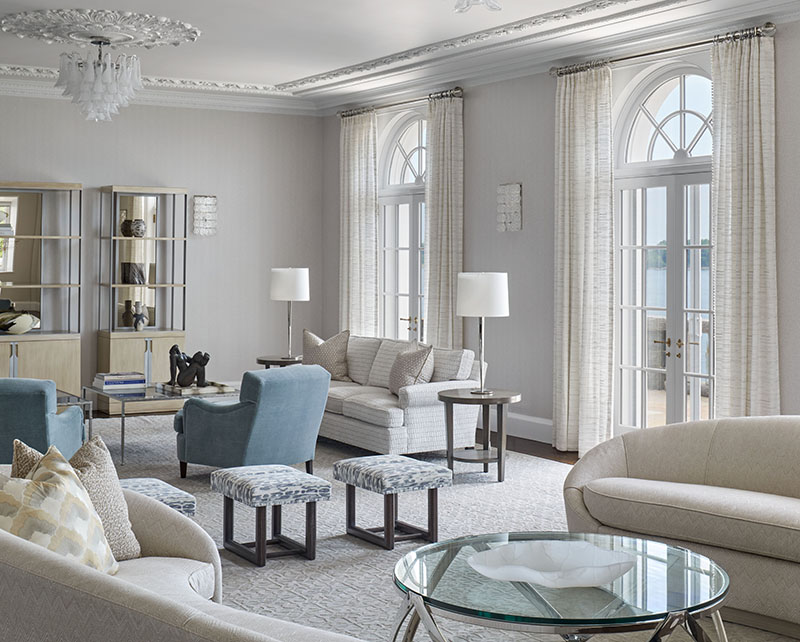

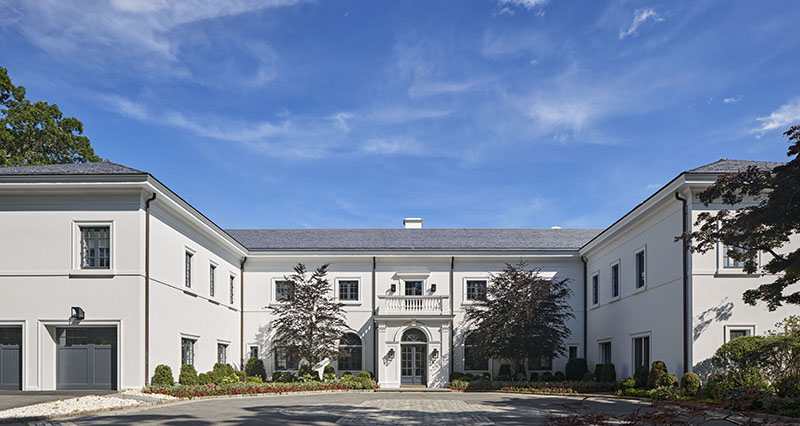

Then Hilton’s work ground to a halt; eventually the house would change hands. When a Filipino couple with four children from Westchester County became its new residents in 2018, they began to articulate a new vision for the home, inside and out.
Their first call was to a contractor who suggested they contact Hilton. “We met with him and he made recommendations,” says the client, a stay-at-home mom whose husband works in finance in New York. “We said: ‘Wow—you really know the house and the area’—and that’s how we ended up with him.”
Hilton and project manager Nicholas Rotondi’s assignment was extensive. Outside, the clients wanted the exterior trim work completed. The terracotta roof was to be stained charcoal, and the pink stucco refinished in a crisp and brilliant white. Inside, they wanted to expand the kitchen, add new finishes throughout the home’s 18,000 square feet, install an elevator, and expand the two-car garage with two new bays and a water-facing terrace atop. A basement was to be completely finished, adding a golf simulator and entertainment center.
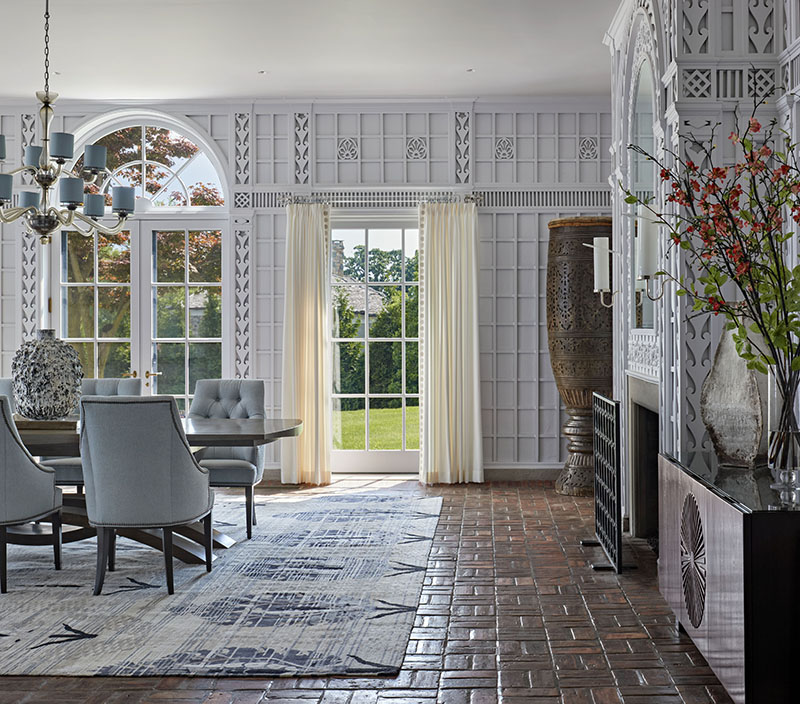

They kept what was important, though. “Many historic homes have architectural styles, details, and features that make them unique and special,” the architect says. “They are cherished parts of the fabric of historical neighborhoods and worth the little extra time, effort, and imagination to preserve.”
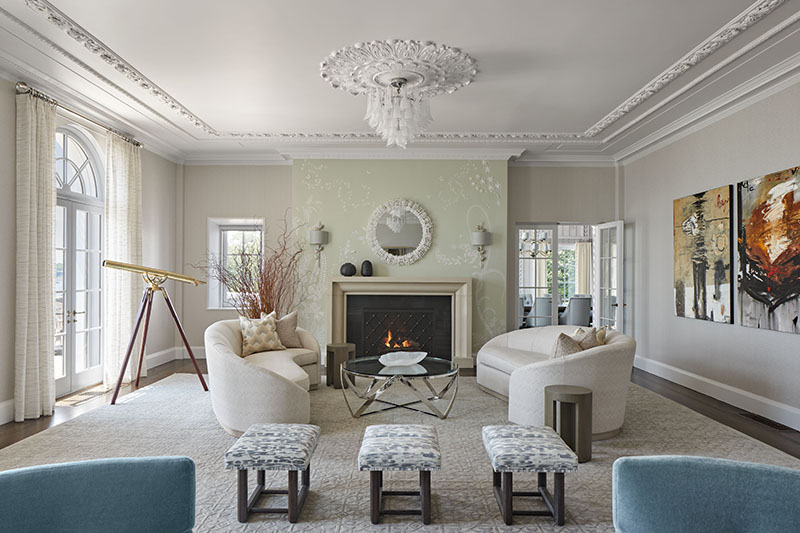

To take on the tasks at hand, the clients called in Colin Christensen, head of CBC Construction in Westchester. Then they asked for interior designer Rob Rizzo, owner of Cobble Court Interiors, to collaborate on the look and feel of the home. Hilton credits Rizzo with the charcoal-and-white color scheme outside.
Rizzo worked not just with the architect, but with the entire family to decide how to design each room. “Rob talked it out with my kids, who are 10, eight, three, and one,” the client says. “The eldest daughter wanted silver and white, the younger boy wanted palm trees plus yellow and blue, our younger daughter wanted a rainbow, and the youngest got a sailboat theme.”
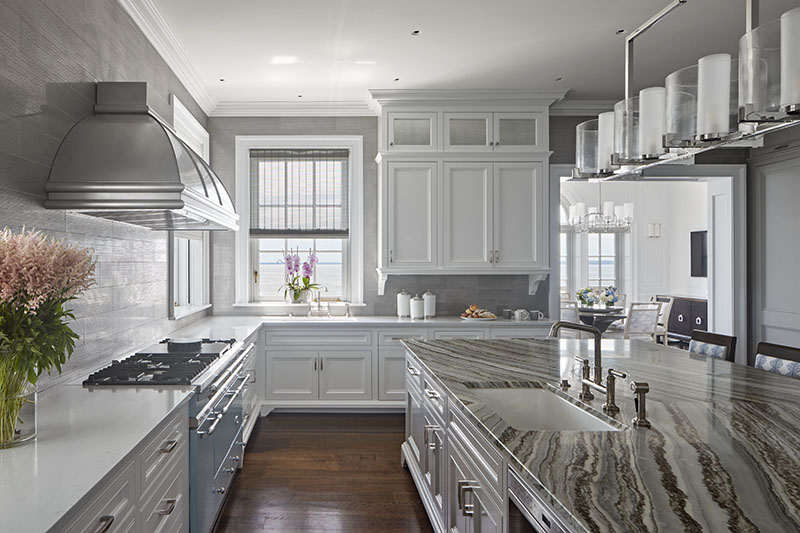

In a single stroke, Hilton and Rizzo transformed the kitchen into a family-friendly compound, then reinvented the solarium. What had been a sunroom is now the dining room—and the dining room next to the kitchen is now a family room. “That added to the charm,” she says. “It made the house feel livable and functional.”
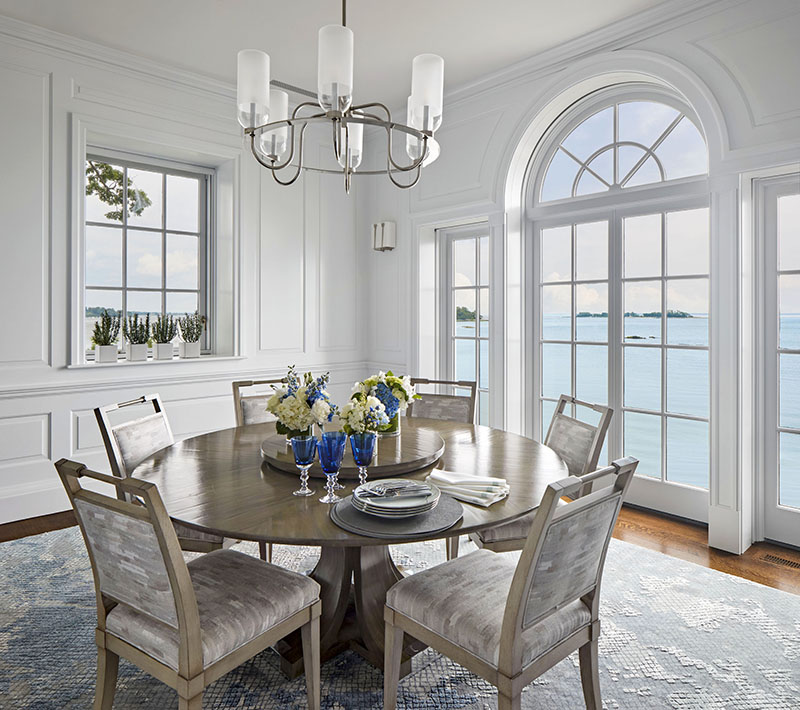

Eschewing anything traditional or heavy, the clients brought a few pieces from their previous home, but relied on Rizzo and Hilton for most of the rest. “We didn’t want the home to be very Asian—there are touches of my country, but the furnishings are not too precious,” she says. “It’s a big house, but it doesn’t feel cavernous—Rob and Chuck did that.”
Rizzo’s material palette varied from room to room. He inserted a number of engaging wooden features—the palm trees in one son’s bedroom are a prime example—and mixed in glass and metal. “The kids were involved, but there are a lot of durable fabrics that are also beautiful,” he says. “And there’s a lot of distressed wood—the more banged up it gets, the better it looks,” he says.
Hilton and Rizzo deliberately kept the finishes light, and in some cases they’re reflective, to help distribute all the natural light that pours into the home. But the big driver for the color palette inside this home was Long Island Sound. Rizzo picked up the changing tones in the color of the water—even when it’s stormy outside. “For the materials, we were aware of the sound and how the light changes,” the client says.
The interior and exterior finishes now complete, the architect is moving on to a terrace, pool, and cabana behind the home. “It’ll further enhance the use and enjoyment of the waterfront site,” Hilton says.
Surely, if Henry Steers had lived, he would have done the same.
For more information, visit hiltonarchitects.com; cobblecourt.com
